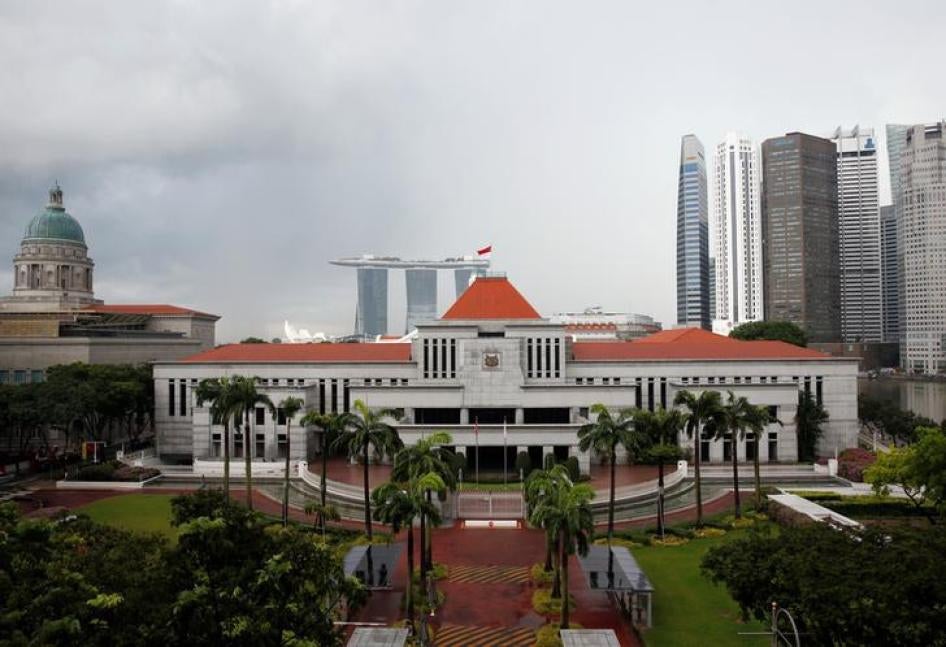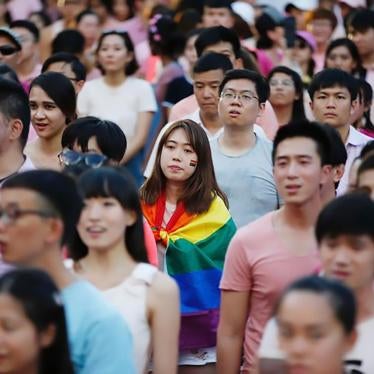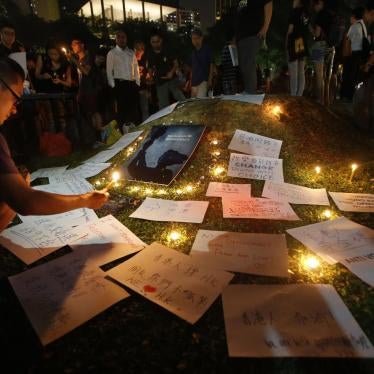(New York) – Singapore’s proposed public order law would further empower the government to repress freedom of assembly and speech, Human Rights Watch said today. The government should revise the Public Order and Safety (Special Powers) bill, introduced in Parliament on February 27, 2018, to ensure that protection of public safety does not violate fundamental rights.
“The Singaporean government’s history of persecuting dissenting voices makes the proposed public order law particularly frightening,” said Brad Adams, Asia director at Human Rights Watch. “Public protests are not a threat that justify the wholescale repeal of basic rights.”
While international law permits government restrictions on certain rights for reasons of national security or public order, they must be proportionate to the aim pursued. The proposed public order law would allow restrictions on peaceful assembly and speech that are grossly disproportionate to any genuine threat posed by protesters, which can already be addressed under existing Singapore law.
The Public Order and Safety (Special Powers) bill gives Singapore’s home affairs minister sweeping powers if a “serious incident” has been, is being, or is likely to be committed. While the law purports to be aimed at “serious violence and large scale public disorder,” the illustrations of what may be considered a “serious incident” make clear that the law can be used against peaceful protesters.
Imagined threats to public safety cannot justify sweeping restrictions on assembly and speech.
Asia Director
Once the minister has declared a serious incident, he can authorize the police to, among other things:
- close roads;
- impose cordons or curfews;
- conduct arrests, searches, and seizures without warrants;
- restrict the freedom of movement of specified individuals; and
- order the dispersal of an assembly or procession.
Police are specifically authorized to enforce their orders with “such force as is necessary,” including the use of lethal weapons.
The bill specifies that a sit-down protest that “impede[s] the flow of vehicular and pedestrian traffic and interfere[s] with normal trade of business activities in the area” could be considered a “serious incident”, justifying activation of these powers. United Nations rights experts have noted the mere fact that a protest may disrupt traffic or interfere with business is not a basis for ordering it to disperse, yet this law would permit not only dispersal of a peaceful assembly that is blocking traffic, but also other serious restrictions on rights such as warrantless searches of people and vehicles in the area.
Dispersal of an assembly should not occur unless law enforcement officials have taken all reasonable measures to facilitate and protect the assembly from harm, and unless there is an imminent threat of serious violence.
The bill indicates a protest in which some demonstrators begin to throw projectiles could be considered a “serious incident”, warranting dispersal of the assembly and suspension of other rights. Rather than disperse an assembly because a few participants engage in violence, UN experts urge law enforcement agencies to seek to “identify and isolate any violent individuals” to permit the assembly to continue.
The proposed law would also impose serious restrictions on freedom of speech, Human Rights Watch said. Once a serious incident has been declared, the home affairs minister may impose a “communication stop order” that bans taking photographs or videos, or sending text or audio messages within a specified area. Violation of the stop order would be a criminal offense punishable by up to two years in prison and a fine of S$20,000 (US$15,200). While the government seeks to justify such bans as necessary to prevent reporting that could disclose or endanger ongoing police operations, a total ban on reporting on incidents, ranging from large-scale protests to an actual terrorist attack, would deny the public access to information at a time when such information is most needed.
“The proposed public order law is just the latest attempt to scare Singaporeans into fearing activity that is normal in a democracy,” Adams said. “Imagined threats to public safety cannot justify sweeping restrictions on assembly and speech. Singapore’s government should show at last that it trusts its citizens to participate in peaceful protests without draconian laws.”









